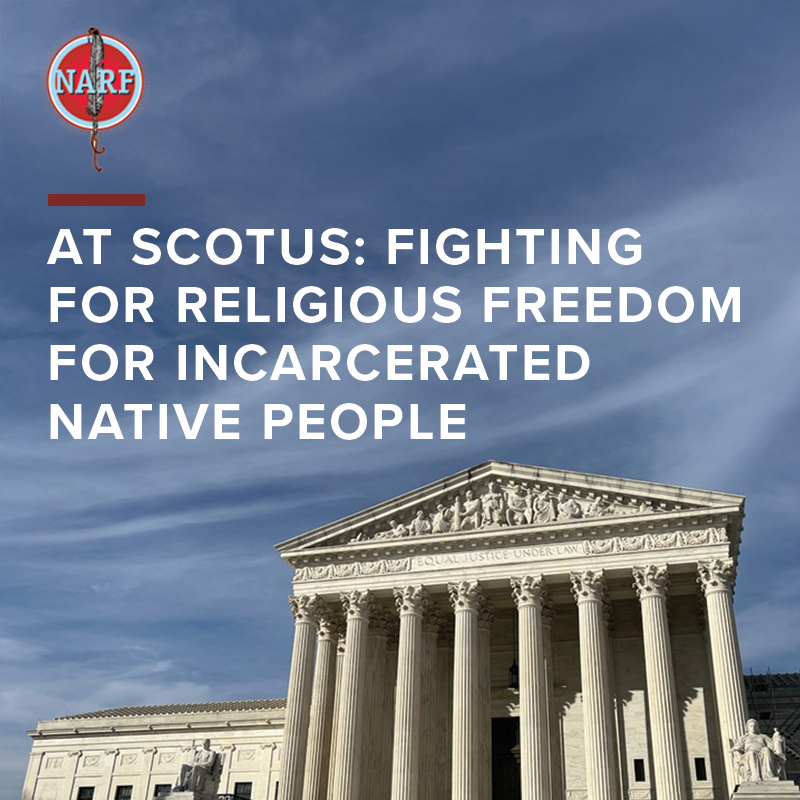
Native organizations provide critical context and information to the U.S. Supreme Court on the impacts of Landor v. Louisiana Department of Corrections on Native prisoners’ rights and the preservation of Native religious practice.
On September 3, 2025, the National Congress of American Indians (NCAI), represented by the Native American Rights Fund and general counsel, and Huy and United South and Eastern Tribes Sovereignty Protection Fund, represented by Hobbs, Straus, Dean, and Walker LLP and general counsel, filed an amicus brief in the U.S. Supreme Court arguing in favor of robust remedies for people whose religious freedom is violated while they are incarcerated. The brief, filed in Landor v. Louisiana Department of Corrections, supports Mr. Landor, a practicing Rastafarian who was forced to cut his dreadlocks in a Louisiana prison.
Wearing unshorn hair is an ancient and significant religious practice for many Native Peoples. Keeping hair unshorn is not only an important practice in and of itself, it also is frequently required to participate in other religious ceremonies. A forced haircut was one brutal tactic used to enforce the United States’s federal policy of forced assimilation of Native Peoples in the late 19th to mid-20th century.
Today, the United States incarcerates more than 29,500 American Indians and Alaska Natives. Allowing religious engagement among incarcerated Native people promotes rehabilitation and reduces the likelihood of recidivism. Forced haircuts by prison officials strip some incarcerated Native people of an important part of their Native identity and substantially burden their religious practice. Forced haircutting is also particularly harmful to incarcerated Native people because it is readily associated with the long history of using forced haircutting to destroy Native communities, religious practices, and Native identity.
“As we see in Mr. Landor’scase, some of the most upsetting religious injuries suffered by incarcerated people are inflicted by the individuals who supervise them on a day-to-day basis. Recognizing that the law provides for financial damages in lawsuits against those individuals can help prevent unlawful conduct and protect religious freedom, which can be important for people seeking to live full, healthy lives,” said NARF Staff Attorney Sydney Tarzwell.
The National Congress of American Indians is the oldest and largest national organization representing the interests of American Indians and Alaska Natives. Huy is a nonprofit organization established to enhance religious, cultural, and other rehabilitative opportunities for imprisoned American Indians, Alaska Natives, and Native Hawaiians. United South and Eastern Tribes Sovereignty Protection Fund is a nonprofit inter-Tribal organization serving 33 federally recognized Tribal Nations from the Northeastern Woodlands to the Everglades and across the Gulf of Mexico, dedicated to enhancing the development of Tribal Nations, improving the capabilities of Tribal governments, and improving the quality of life for Indian people.
More blog posts

